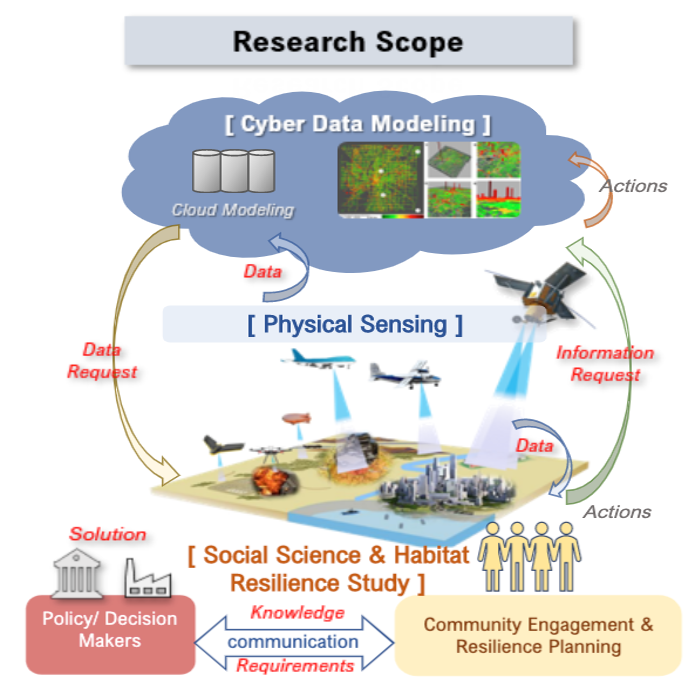
The grant challenge focuses on preventing the global climate action failure by leveraging transdisciplinary strengths on Greenhouse Gas (GHG) emission research at OU. It cuts across 3 of the OU’s strategic research themes: 1) Environment, Energy & Sustainability, 2) Society & Community Transformation and 3) Future of Health. Climate Action Failure [i],[ii] is the top most global risk because of its potentially enormous impact on the human society, while increase in Greenhouse Gases is considered the primary driver for climate change. To avoid devastating consequences, GHG emissions have to decline precipitously or become neutral or negative over the next few decades. New sustainability policies are needed to scale novel solutions to transform industrial processes, transport, land-use, and changes in community behaviors. To achieve such goals, governments, industries and societies need much better ability to monitor, track and attribute GHG emissions and assessment of their impacts for effective policy making and planning.

Our overarching goal is to bring together OU talents across multiple STEM and Social Sciences disciplines to enhance future community sustainability via creating holistic GHG emission monitoring and modeling solutions. This concept integrates existing high-altitude observation networks with the near-surface, field-scale sensing/observation technologies to produce high-precision sensing data in spatial and temporal domains. Using such data, highly resilient design and planning strategies for urban, suburban and rural communities will be created by landscape architects. Community surveys will also be developed by sociologists to assess the emission impact on vulnerable societies. Then, these transdisciplinary works will be integrated to create an expandable computational framework for predicting and exploring new policies for enhancing the community sustainability. Strong partnerships will be established with stakeholders including state administrators, business leaders, and federal agencies (e.g., USDA, DoT, FAA).
The GHG monitoring, and modeling framework will advance the state of science in capabilities for identifying emission sources and tracking their distributions and impacts. The “data-driven” community design and planning strategies will effectively enhance the community resiliency. The social survey will produce realistic understandings of human behavioral impacts and strengthen the climate-change knowledge and awareness among regional communities. Moreover, cyber-physical-social modeling that integrates the multidisciplinary outcomes will lead to a systematic guideline to support and influence policy-making processes that reinforce long-term community sustainability. Interactions among members and communities will stimulate more collaborative proposals, and educate diverse community populations climate change impacts, respectively. An ultimate goal is to position OU as a leader in tackling various emerging climate change challenges.
[i] IPCC, 2019. Climate change and land. An IPCC special report on climate change, desertification, land degradation, sustainable land management, food security, and greenhouse gas fluxes in terrestrial ecosystems. The United Nation’s Intergovernmental Panel on Climate Change (IPCC), https://www.ipcc.ch/site/assets/uploads/2019/08/Fullreport-1.pdf, Accessed 1 November 2020
[ii] Franco, E. G. "The Global Risks Report 2020." World Economic Forum. 2020.